Filter by
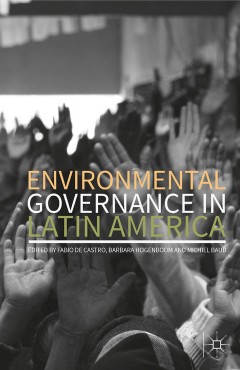
Environmental governance in Latin America
The multiple purposes of nature – livelihood for communities, revenues for states, commodities for companies, and biodiversity for conservationists – have turned environmental governance in Latin America into a highly contested arena. In such a resource-rich region, unequal power relations, conflicting priorities, and trade-offs among multiple goals have led to a myriad of contrasting initi…
- Edition
- -
- ISBN/ISSN
- 9781137505729
- Collation
- xii, 338p. : ill.
- Series Title
- -
- Call Number
- 333.7098 ENV e
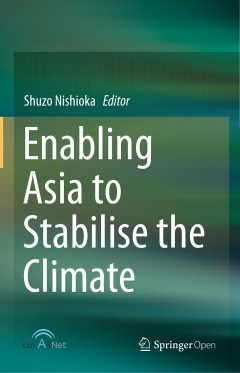
Enabling Asia to stabilise the climate
This book presents good practices in Asia and ASEAN countries for effectively promoting advances in response to climate change, which can help to achieve sustainable development in Asia and around the world. As a proposal, the aim is to influence the discussions at COP 21 by providing a positive agenda with concrete actions from an Asian perspective. The book is divided into three parts. Part 1…
- Edition
- -
- ISBN/ISSN
- 9789812878267
- Collation
- x, 270p. : ill.
- Series Title
- -
- Call Number
- 338.927 ENA e
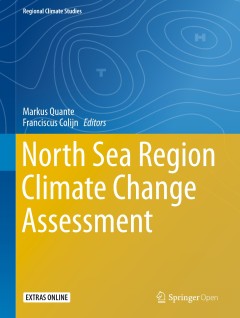
North Sea region climate change assessment
This book offers an up-to-date review of our current understanding of climate change in the North Sea and adjacent areas, as well as its impact on ecosystems and socio-economic sectors. It provides a detailed assessment of climate change based on published scientific work compiled by independent international experts from climate-related disciplines such as oceanography, atmospheric sciences, m…
- Edition
- -
- ISBN/ISSN
- 9783319397450
- Collation
- xlv, 528p. : ill.
- Series Title
- -
- Call Number
- 363.73874 NOR n

Radiological issues for Fukushima's revitalized future
This book overviews environmental issues 4 years after the Fukushima nuclear accident, covering a wide range of areas related to radiation and radioactivity. The topics discussed are necessary to make clear the relationship between the results of research and Fukushima’s revitalized future. The chapters are divided into four parts: Part 1 presents the identification of radionuclides in soil a…
- Edition
- -
- ISBN/ISSN
- 9784431558484
- Collation
- xiii, 232p. : ill.
- Series Title
- -
- Call Number
- 363.738 RAD r

The future of the law of the sea : bridging gaps between national, individual…
It explores the diverse phenomena which are challenging the international law of the sea today, using the unique perspective of a simultaneous analysis of the national, individual and common interests at stake. This perspective, which all the contributors bear in mind when treating their own topic, also constitutes a useful element in the effort to bring today’s legal complexity and fragmenta…
- Edition
- -
- ISBN/ISSN
- 9783319512747
- Collation
- xx, 269p. : ill.
- Series Title
- -
- Call Number
- 341.4 FUT f
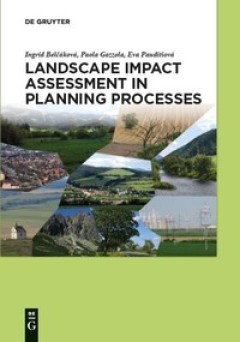
Landscape impact assessment in planning processes
Aims and Scope Growing social and economic needs exert major pressures on landscapes, challenging preserved landscape values and the regional significance of places. As a result, the scope oflandscape management has broadened and diversifiedin response to international calls for greater landscape protection, and to existing and new challenges, such as thoserelating to climate change adaptation…
- Edition
- -
- ISBN/ISSN
- 9783110601558
- Collation
- X, 218 p.
- Series Title
- -
- Call Number
- 712 BEL l
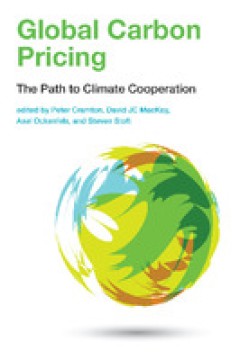
Global carbon pricing: the path to climate cooperation
Why the traditional “pledge and review” climate agreements have failed, and how carbon pricing, based on trust and reciprocity, could succeed.After twenty-five years of failure, climate negotiations continue to use a “pledge and review” approach: countries pledge (almost anything), subject to (unenforced) review. This approach ignores everything we know about human cooperation. In this …
- Edition
- -
- ISBN/ISSN
- 9780262036269
- Collation
- xvii, 252p.: ill.
- Series Title
- -
- Call Number
- 363.738746 GLO g

Railway ecology
This book provides a unique overview of the impacts of railways on biodiversity, integrating the existing knowledge on the ecological effects of railways on wildlife, identifying major knowledge gaps and research directions and presenting the emerging field of railway ecology. The book is divided into two major parts: Part one offers a general review of the major conceptual and theoretical p…
- Edition
- -
- ISBN/ISSN
- 9783319574967
- Collation
- xxx, 320p. : ill.
- Series Title
- -
- Call Number
- 577 RAI r
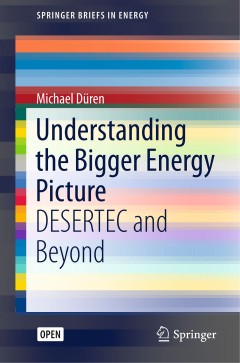
Understanding the bigger energy picture : DESERTEC and beyond
This book focuses on the global cycles of energy, water and carbon, which are not only the essentials of our main energy carriers, the fossil fuels, but are also the building blocks of life. The book offers an overview of the basic scientific facts and relationships that are needed to understand today’s energy generation and use, how they relate to global climate, the water cycle and other re…
- Edition
- -
- ISBN/ISSN
- 9783319579665
- Collation
- xv, 110p. : ill.
- Series Title
- -
- Call Number
- 333.79 DUR u
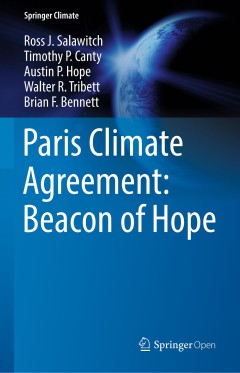
Paris climate agreement : beacon of hope
This volume presents an Empirical Model of Global Climate developed by the authors and uses that model to show that global warming will likely remain below 2ºC, relative to preindustrial, throughout this century provided: a) both the unconditional and conditional Paris INDC commitments are followed; b) the emission reductions needed to achieve the Paris INDCs are carried forward to 2060 and be…
- Edition
- -
- ISBN/ISSN
- 9783319469393
- Collation
- xvii. 186p. : ill.
- Series Title
- -
- Call Number
- 363.738746 PAR p
 Computer Science, Information & General Works
Computer Science, Information & General Works  Philosophy & Psychology
Philosophy & Psychology  Religion
Religion  Social Sciences
Social Sciences  Language
Language  Pure Science
Pure Science  Applied Sciences
Applied Sciences  Art & Recreation
Art & Recreation  Literature
Literature  History & Geography
History & Geography